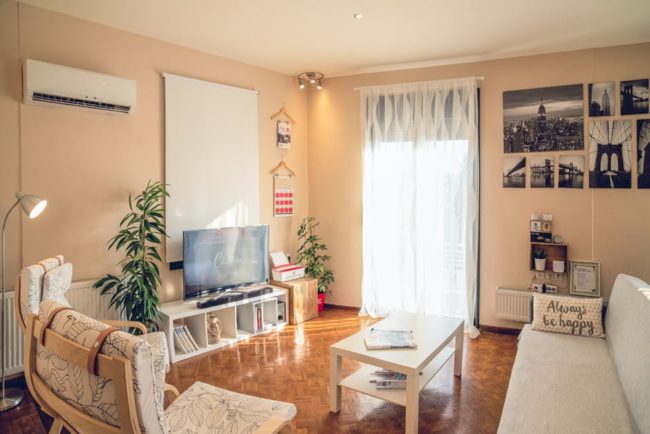So you’re heading off to college? Congratulations!
Whether it’s your first year or last, the question of student housing is probably on your mind. Should you live on-campus or off-campus? What are the pros and cons?
Many colleges provide a lot of options for housing so it’s just a matter of figuring out what’s right for you.
Keep reading for the full guide to answer the question “how does student housing works?”
Options for Living On-Campus
Living on-campus is a classic student experience, and millions of students choose this housing option each year. There are several types of on-campus housing, with the most obvious being dorm living.
Applying for a dorm typically happens at the same time as you receive your financial aid and other information when starting school. Students who are returning can also usually work with their school to apply for student housing at the end of the year for the next year.
Some students may tire of dorm life after the first year since it involves sharing a room and a bathroom. An alternative option for students who can afford it is living in on-site Greek housing.
There are hundreds of universities in the US with Greek housing options. Often, these houses can hold more than 20 people living together at once. This fosters a sense of brotherhood or sisterhood and can be great for a student’s social life.
Some colleges even have co-ed Greek life and include housing options with a fraternity of men and women.
Lastly, if you become an RA, or resident adviser, you can typically live on-campus for a fraction of the cost. This would involve living in a dorm, but can mean that you’re able to add a leadership trait to your future resume.
Pros and Cons of Campus Housing
Many students end up loving campus housing. One of the biggest pros is probably social life, especially for new students. Dorms can often be the first place many students form friendships while away at college.
There’s a certain camaraderie that comes with living on-campus since most people will do things together, like study or have fun. It also eases the transition into college life since everyone around you is partaking in the same activities.
Another pro to on-campus housing is that your expenses are all included. You also often pay for this along with tuition, so it’s not something that will come up every month like an apartment’s rent. Depending on your school, you might also get a meal plan.
While all the expenses might be included in one payment for campus housing, a large con to this choice is that it is likely going to add up to be more than off-campus housing.
Another con for many students is that you are sharing spaces. Especially after that first year, you may want more privacy and space.
Dorms are also known for brick walls and small spaces. This isn’t always ideal and can make it difficult to feel at home over the years.
Understanding Off-Campus Housing Options
For students who prefer more independence, off-campus housing is usually the way to go. College towns typically have a lot of student apartments with affordable living.
One of the first things to consider is location. Your options are likely going to be limited to what you can afford and how you plan to commute to school. Looking into neighborhoods with affordable apartments should be the first thing on your list.
Also, consider both price and how you plan to sign a lease. Often, if it’s your first lease, you may need a parent or other adult to co-sign. This will allow the apartment or owners to trust that someone will pay rent.
Think about the type of housing you are looking for as well. Do you prefer an apartment or house? It’s possible you can rent a house with many other students for an affordable amount, especially if you have a lot of roommates.
Also, if you are living with many other people, or even just one other roommate, make sure you choose wisely.
You won’t have an RA around so you’ll need roommates who you can live with and sort out any future disagreements. When you agree to live with people, start off on the right foot by communicating about preferred living styles.
Pros and Cons of Off-Campus Housing
One of the biggest pros is that off-campus housing will likely be a lot less expensive than on-campus housing. You’ll also have independence and will learn responsibility when paying utility bills and rent each month.
Off-campus housing also clearly comes with more independence since the on-campus rules may not apply. Many students who are older, or in graduate school, will choose off-campus housing for privacy as well.
If you think you’ll be taking summer classes or would want to stay in your college town during the summer, off-campus housing will be helpful to you. Most dorms aren’t open during the summer so this will be a good way for you to secure a place to live.
The biggest con, depending on your situation, to off-campus housing is the lack of convenience. You might not be able to walk to class and won’t be eating at the school’s cafeteria. This means extra costs like bus fees or gas for your car and grocery shopping.
Also, if you plan to go somewhere else for the summer, your lease might make you feel stuck. Apartment leases are often for a full year.
Make sure you’re also prepared to go on the hunt for an apartment and a roommate. This can be a difficult task and your school may not assist you.
Questions Answered About How Student Housing Works
By following the guide above, you’ll know the answer to “how does student housing work?” and be able to find a great place to live!
If you’re thinking of choosing an on-campus option, be sure to apply for a dorm or Greek house within the right time frame. Or if you’re looking for an off-campus apartment, start researching neighborhoods and pricing.








